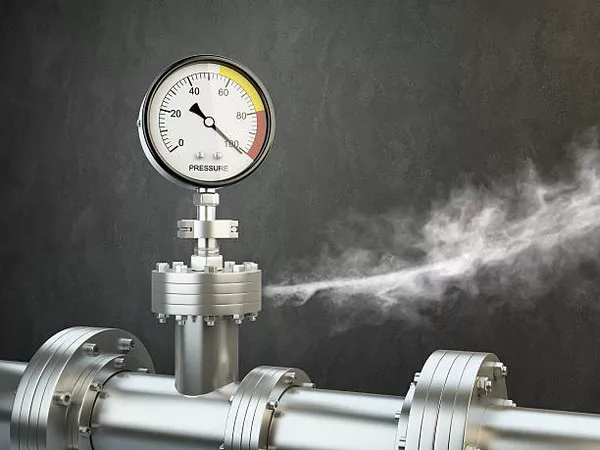Boiler pressure gauges are critical components in industrial and commercial boiler systems. They provide real-time pressure readings, ensuring that boilers operate within safe and efficient parameters. Over time, pressure gauges may drift from their accurate readings due to environmental factors, mechanical wear, and material fatigue. This deviation can lead to inaccurate pressure readings, which may result in inefficient operation, increased maintenance costs, and safety hazards. Therefore, regular calibration of boiler pressure gauges is essential.
This article discusses the importance of calibration, the factors affecting calibration frequency, recommended intervals for calibration, and best practices for ensuring reliable and accurate pressure gauge readings.
Importance of Boiler Pressure Gauge Calibration
1. Safety Assurance
Boilers operate under high pressure and temperature conditions, making safety a top priority. An inaccurate pressure gauge may lead to overpressure situations, which can result in boiler explosions, damage to equipment, and even loss of life. Calibration ensures that the gauge provides correct readings, allowing operators to maintain safe operating conditions.
2. Efficiency Optimization
Incorrect pressure readings can lead to inefficient fuel consumption and reduced performance of the boiler. Overpressure or underpressure can affect heat transfer efficiency and increase operational costs. Regular calibration ensures the boiler operates at its optimal pressure range, minimizing energy waste.
3. Regulatory Compliance
Many industrial sectors have strict regulations regarding boiler safety and maintenance. Organizations such as the Occupational Safety and Health Administration (OSHA), the American Society of Mechanical Engineers (ASME), and the National Board of Boiler and Pressure Vessel Inspectors mandate regular inspections and calibrations to comply with industry standards.
4. Equipment Longevity
Excessive or insufficient pressure can strain boiler components, leading to premature wear and tear. Accurate pressure gauge readings allow for proper maintenance and timely interventions, extending the lifespan of the boiler system.
5. Prevention of Downtime and Costly Repairs
Calibration helps identify faulty gauges before they cause operational disruptions. Unexpected breakdowns and emergency repairs can be costly, and unplanned downtime can affect productivity. Regular calibration reduces the likelihood of operational failures and keeps the system running smoothly.
Factors Affecting Calibration Frequency
Several factors influence how often a boiler pressure gauge should be calibrated:
1. Operating Environment
Gauges in harsh environments with high temperatures, vibrations, humidity, or corrosive substances tend to drift faster. In such conditions, more frequent calibration is necessary to maintain accuracy.
2. Usage Intensity
Boilers operating continuously or under high loads experience more wear and tear. The more frequently a gauge is used, the greater the likelihood of drift, necessitating more regular calibration.
3. Manufacturer Recommendations
Gauge manufacturers provide specific calibration schedules based on the design and expected accuracy drift over time. Following these recommendations helps maintain performance and compliance with warranty conditions.
4. Industry Regulations and Standards
Some industries have stringent calibration requirements. For example, power plants and chemical processing industries often have strict guidelines on gauge calibration due to the critical nature of their operations.
5. History of Calibration Accuracy
If a gauge consistently holds its calibration over multiple cycles, its calibration interval may be extended. Conversely, gauges that frequently show deviations should be calibrated more often.
Recommended Calibration Intervals
While the exact frequency of calibration depends on the factors mentioned above, general guidelines can be followed:
1. Annual Calibration (Once a Year)
For most standard industrial and commercial applications, an annual calibration is sufficient to maintain accuracy and safety compliance.
2. Bi-Annual Calibration (Every Six Months)
For environments with high vibration, temperature fluctuations, or frequent operation, a six-month calibration schedule is advisable.
3. Quarterly Calibration (Every Three Months)
Critical applications such as power plants, chemical processing facilities, and high-risk environments require quarterly calibrations to ensure optimal performance and adherence to strict safety standards.
4. Monthly Calibration
In extreme operating conditions where pressure variations are frequent and safety risks are high, monthly calibration may be required to ensure gauge reliability.
Best Practices for Boiler Pressure Gauge Calibration
1. Use Certified Calibration Equipment
Calibrating pressure gauges requires high-precision equipment such as deadweight testers, digital pressure calibrators, or comparison pressure test rigs. Ensure the equipment used is certified and traceable to national or international measurement standards.
2. Follow Standard Calibration Procedures
Calibration should follow recognized industry standards such as:
- ASME B40.100 for pressure gauges
- ISO/IEC 17025 for calibration laboratories
- ANSI/NCSL Z540 for measurement management
3. Document Calibration Results
Maintain detailed records of calibration dates, results, adjustments made, and the next scheduled calibration. This documentation ensures compliance with regulations and helps track gauge performance over time.
4. Train Personnel on Calibration Procedures
Operators and maintenance personnel should be trained to recognize signs of gauge inaccuracy and understand calibration protocols. Proper training enhances operational reliability and safety.
5. Replace Worn-Out Gauges
If a gauge frequently requires recalibration or shows erratic readings, consider replacing it with a new one. Investing in high-quality, durable gauges can reduce calibration frequency and maintenance costs.
6. Conduct Regular Visual Inspections
Routine inspections can help identify issues such as needle sticking, condensation inside the gauge, or physical damage. Early detection of these issues prevents inaccurate readings and potential failures.
7. Perform On-Site Calibration Checks
Portable pressure calibration devices allow for on-site verification of gauge accuracy between scheduled calibrations. This practice ensures continuous reliability.
Conclusion
Boiler pressure gauge calibration is a crucial aspect of maintaining safe and efficient boiler operations. The frequency of calibration depends on several factors, including the operating environment, usage intensity, industry regulations, and manufacturer recommendations. While an annual calibration is sufficient for most applications, high-risk environments may require more frequent checks.
By implementing best practices such as using certified calibration equipment, documenting results, training personnel, and performing regular inspections, businesses can ensure the reliability of their pressure gauges. Proper calibration minimizes safety risks, optimizes efficiency, ensures regulatory compliance, and extends the lifespan of boiler systems.
Regular calibration is not just a recommended practice—it is an essential step in responsible boiler maintenance and operation.

